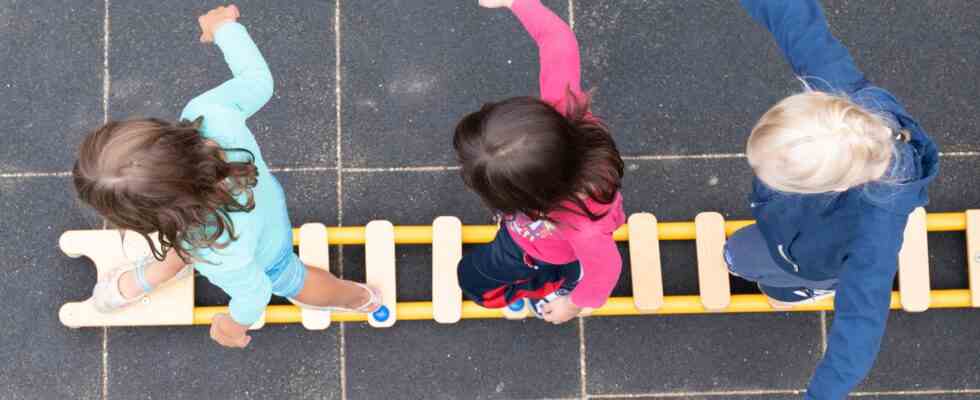analysis
Status: 01/07/2023 5:27 p.m
The basic child security is the largest socio-political project of Minister for Family Affairs Paus. However, the project does not want to make any real progress. This is not only due to the coalition partner FDP.
On New Year’s Eve, Federal Family Minister Lisa Paus wished her followers a successful start to the new year on Twitter. The reactions were meager: Hardly more than a dozen people reacted with “likes”. Paus shouldn’t be new to this: in the past year, the minister often had to experience that her well-intentioned messages hardly got through. The war against Ukraine and the resulting energy crisis: Family policy issues were a secondary concern.
The traffic light coalition had announced major reforms, especially in social policy. When she took office, the Green Minister of Child Poverty announced her fight. But she is now fighting the actual battles with her cabinet colleagues. The issue of basic child security is the hardest fought over.
What should change?
The plan is to bundle the previous child benefit and other family benefits and thus improve opportunities for children. There should be a guarantee contribution that all parents receive after the birth of the child. In addition, an additional contribution is being considered, which will be paid out depending on the income of the families. Paus expects this to bring about a paradigm shift and sets the bar high: it is the federal government’s largest socio-political project.
In fact, it is above all a prestige project of the Greens, which they also advertised in the election campaign. Paus does not tire of emphasizing publicly that basic child security is anchored as a goal in the coalition agreement. A message that goes primarily in the direction of the FDP. Because the Liberals are apparently not as attached to the project as their coalition partner. In particular, there is little enthusiasm in the Ministry of Finance: Because the basic child security could be expensive.
Resistance from the FDP is to be expected
However, it is not yet clear how many additional costs the federal budget will incur. That also depends on how high the guarantee amount is that should be given for each child. Paus didn’t want to commit himself in the end. Strategically, this could be an advantage for them: A fixed sum would certainly make negotiations with Finance Minister Christian Lindner more difficult.
However, Paus announced that the amount would be in line with the child benefit. That’s currently 250 euros. The concept for basic child security, which the Greens developed a few years ago, even proposes 290 euros. According to this, low-income families should be able to add several hundred euros, up to a maximum of 547 euros.
However, the Ministry of Finance is concerned that the incentive to go to work at all will be lost as a result of the high level of basic child security. There was a similar discussion about citizen income. The coalition and opposition had been fighting over this for a long time last year. The debates about basic child security will hardly be less intense. The next traffic light dispute seems programmed.
Five ministries involved
It is questionable whether the ambitious schedule is tenable given the differences between the Greens and the FDP. Paus wants basic child security to be paid out from 2025. So before the next general election.
This will also be a major administrative challenge. An interministerial working group has been meeting regularly for almost a year to discuss the main points of the project. Representatives of the ministries for family, finance, labour, education and construction will be there. The latter is represented because the housing benefit entitlements should also be taken into account with the basic child security. This means that five ministries have to agree on a legislative proposal. They want to have it done by summer.
Social associations are already putting pressure on them: things can’t go fast enough for them. As a kind of bridging measure, Paus pushed through a higher child allowance and higher child benefit last summer. Finance Minister Lindner was initially not convinced of this either. In the end, Paus prevailed: since the first of January, there has been child benefit of 250 euros per month for each child. And parents whose income is not enough to feed the whole family can apply for a child allowance of up to 250 euros.

